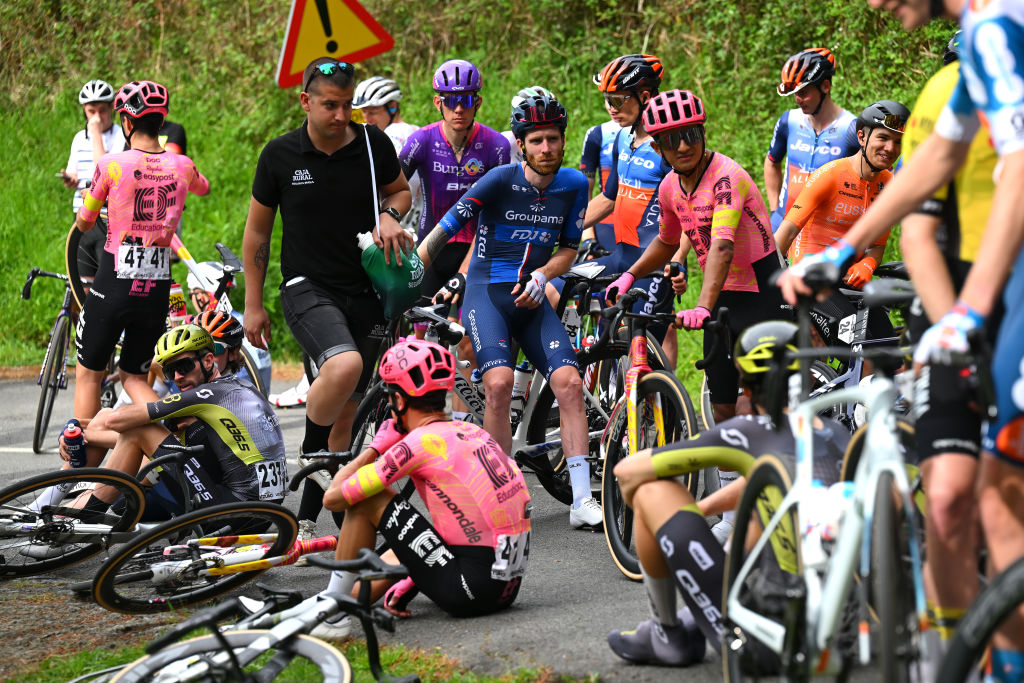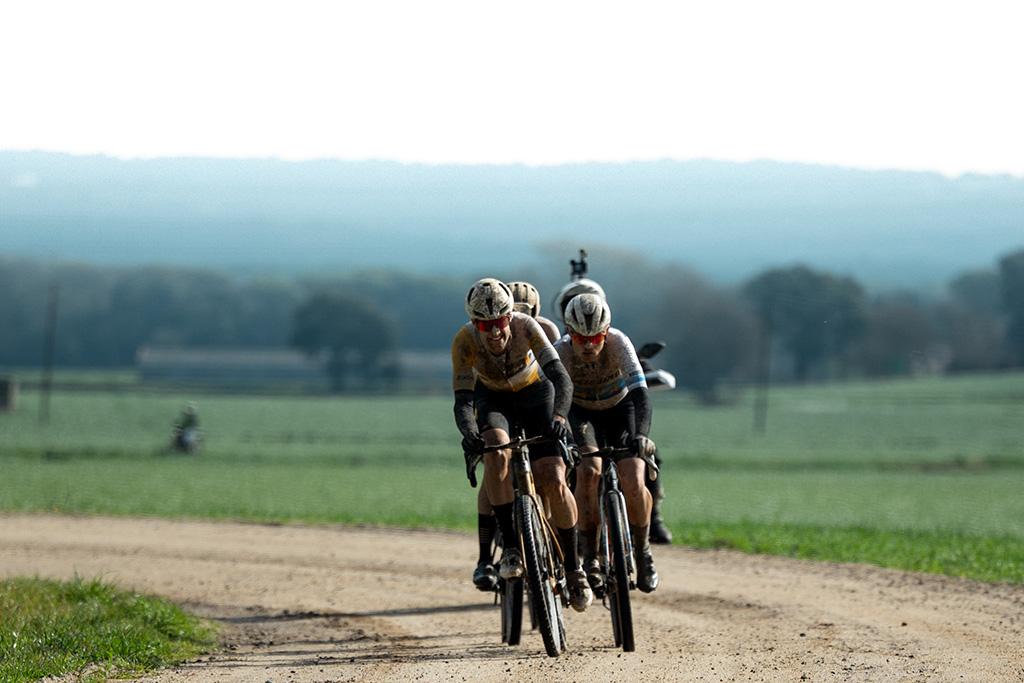'Riders are going too fast!' – Tour de France director blames crashes on increasing racing speeds
Race organisers consider GPS tracking in wake of Muriel Furrer's death at World Championships

The latest race content, interviews, features, reviews and expert buying guides, direct to your inbox!
You are now subscribed
Your newsletter sign-up was successful
The association of race organisers (AIOCC) held its General Assembly in Italy on Friday with safety the main point of discussion after a season that saw Muriel Furrer die following a crash at the World Championships and Tour de France contenders seriously injured in a mass crash in the Itzulia Basque Country.
Christian Prudhomme, the general director of the Tour de France, blamed the Itzulia crash on the speed of the peloton.
"Beyond the behavior of the athletes and the work of the organisers, it is absolutely necessary to reduce speed by appropriate measures: the riders are going too fast," Prudhomme emphasised.
"The faster they go, the greater the risk and the more they endanger themselves and others. We already said it here last year: our car and motorbike drivers no longer have a safety margin! Imagine the consequences if one of our drivers, subjected to too much pressure, lost control on a descent from a pass or when racing through a built-up area."
Much like during the UCI Congress, the subject of Muriel Fisher's tragic death brought safety into focus in the meeting, with race radios among the topics.
UCI President David Lappartient responded to a question about the federation's plan to reduce the use of earpieces in the peloton by asserting that there are fewer crashes in the world championships where earpieces are not allowed.
Lappartient said that teams argue in favour of earpieces over safety concerns, but shot back that teams all tell their riders to move up at the same time before a critical part of the course, which causes crashes, and pointed to the radios riders wear on their backs as having the potential to cause spinal fractures.
The latest race content, interviews, features, reviews and expert buying guides, direct to your inbox!
"I've also had riders write to me who don't necessarily want me to publish their names – the majority will want to keep the earpieces - but there are still a lot of riders who consider that it's an element that contributes to a certain amount of stress in the peloton.
"I think it's a bit of a shame that some people want to draw a conclusion from a dramatic fall such as that of Muriel Furrer, which is under investigation by the police," he said, adding that an earpiece might not have helped.
He did suggest that GPS trackers could be used in the future to send an alert when a rider's speed has dropped to zero.
"There are several options, there could also be a riders' radio that would transmit safety information to the riders," he said, rather than a two-way radio that would allow teams to send strategic instructions to the riders.
Lappartient also discussed the new yellow card system that will begin to lead to sanctions on teams and riders for safety rule violations during races after a successful trial during the 2024 season.
He said the UCI has taken feedback from riders and he agreed there is some calibration to be done on the scheme. Race officials will be trained so that penalties are imposed consistently between races.

Laura Weislo has been with Cyclingnews since 2006 after making a switch from a career in science. As Managing Editor, she coordinates coverage for North American events and global news. As former elite-level road racer who dabbled in cyclo-cross and track, Laura has a passion for all three disciplines. When not working she likes to go camping and explore lesser traveled roads, paths and gravel tracks. Laura specialises in covering doping, anti-doping, UCI governance and performing data analysis.
